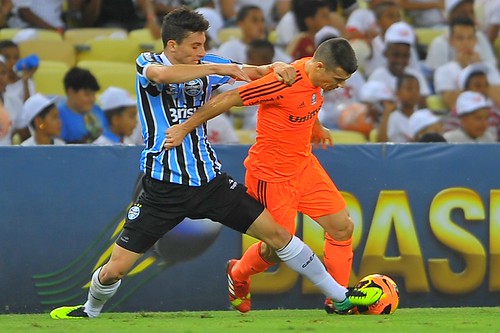Who is Wagner chief Yevgeny Prigozhin?
Wagner #Wagner

(CNN) — The fate of Wagner private mercenary group founder Yevgeny Prigozhin was unclear on Wednesday evening, after his name was listed among passengers of a plane that crashed north of Moscow.
Once a shadowy figure, Prigozhin was thrust into the spotlight through his group’s close involvement in Russia’s invasion of Ukraine, securing rare victories for the Kremlin.
Prigozhin led an armed insurrection against Russian President Vladimir Putin two months ago to the day on June 23, after railing against the country’s top military brass over their handling of the Ukraine war.
 FILE – Russian businessman Yevgeny Prigozhin is shown prior to a meeting of Russian President Vladimir Putin and Chinese President Xi Jinping in the Kremlin in Moscow, Russia, on July 4, 2017. A business jet en route from Moscow to St. Petersburg crashed Wednesday Aug. 23, 2023, killing all ten people on board, Russian emergency officials said. Mercenary chief Yevgeny Prigozhin was on the passenger list, officials said, but it wasn’t immediately clear if he was on board. (Sergei Ilnitsky/Pool via AP, File)
FILE – Russian businessman Yevgeny Prigozhin is shown prior to a meeting of Russian President Vladimir Putin and Chinese President Xi Jinping in the Kremlin in Moscow, Russia, on July 4, 2017. A business jet en route from Moscow to St. Petersburg crashed Wednesday Aug. 23, 2023, killing all ten people on board, Russian emergency officials said. Mercenary chief Yevgeny Prigozhin was on the passenger list, officials said, but it wasn’t immediately clear if he was on board. (Sergei Ilnitsky/Pool via AP, File)
His group started marching towards Moscow, shooting down military aircraft and killing Russian servicemen. But it was abruptly halted when a deal was brokered by Belarusian leader Alexander Lukashenko.
Criminal charges were dropped against the Wagner boss, who was supposed to go to neighboring Belarus. Putin said in a speech at the time that those on the “path of treason” would face punishment.
And yet, in the months since, Prigozhin hasn’t exactly kept a low profile, popping up in St. Petersburg and, earlier this week, he claimed, in Africa.
Humble beginnings
Putin and Prigozhin share relatively humble beginnings, and the Wagner chief grew up in the tougher neighborhoods of St. Petersburg, also the president’s hometown.
The men have known each other since the 1990s. Prigozhin became a wealthy oligarch by winning lucrative catering contracts with the Kremlin, earning him the moniker “Putin’s chef.”
His transformation into a brutal warlord came in the aftermath of the 2014 Russian-backed separatist movement in the Donbas in eastern Ukraine.
Prigozhin founded Wagner as a mercenary outfit that fought both in Ukraine and, increasingly, for Russian-backed causes around the world.
CNN has tracked Wagner mercenaries in the Central African Republic, Sudan, Libya, Mozambique, Ukraine and Syria. Over the years they have developed a gruesome reputation and have been linked to multiple human rights abuses.
After Russia’s 2022 invasion of Ukraine the group – bolstered by convict recruits – took center stage. Wagner forces were heavily involved in taking the Ukrainian towns of Soledar and Bakhmut.
As the regular Russian army campaign was bogged down by setbacks and disorganization, Wagner fighters appeared to be the only ones capable of delivering tangible progress for the Russian side.
Dilemma for Putin
Known for its disregard for the lives of its own soldiers, Wagner’s brutal and often lawless tactics are believed to have resulted in high numbers of casualties, as new recruits are sent into battle with little formal training – a process described by retired United States Lt. Gen. Mark Hertling as “like feeding meat to a meat grinder.”
Prigozhin has used social media to lobby for what he wants and often cast himself as competent and ruthless in contrast to the Kremlin’s military establishment.
In recent months, Prigozhin has created a dilemma for Putin by becoming an outspoken critic of Russia’s military leaders.
In one particularly grim video from early May, Prigozhin stood next to a pile of dead Wagner fighters and took aim specifically at Russian Defense Minister Sergei Shoigu and chief of the Russian armed forces, Gen. Valery Gerasimov.
“The blood is still fresh,” he said, pointing to the bodies behind him. “They came here as volunteers and are dying so you can sit like fat cats in your luxury offices.”
After complaining for well over a month of receiving insufficient support from the Kremlin in the grueling fight for the eastern city of Bakhmut, he announced in May that his troops would withdraw.
Prigozhin launched an all-out rebellion against the Kremlin in June at time when many observers were questioning if he was going too far with his increasingly outrageous outbursts.
The Wagner mutiny began when Prigozhin unleashed a fresh tirade against the Russian military and then marched his troops into the Russian city of Rostov-on-Don.
Staring down a sudden and staggering escalation of internal tensions that have simmered for months, Putin called Wagner’s actions “treason.”
“It is a stab in the back of our country and our people,” the president said in an address after Wagner’s about-face.
Prigozhin responded on Telegram saying that Putin was “deeply mistaken.”
“We are patriots of our Motherland, we fought and are fighting,” the Wagner chief said.